A True Island Effort: Colombian Military working alongside World Vets
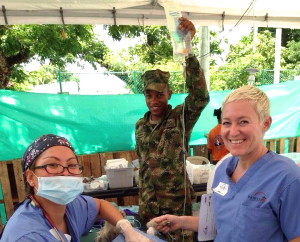 For the last few years World Vets has been partnering with the Department of Health on San Andres Island to help control the small animal population through spay/neuter.
For the last few years World Vets has been partnering with the Department of Health on San Andres Island to help control the small animal population through spay/neuter.
During these campaigns, we are also joined by members of the Colombian military who assist our teams in transporting dogs, providing crowd control and other tasks involved with the clinic.
We just recently completed a large scale spay/neuter and animal health campaign which resulted in close to 200 surgeries being performed.
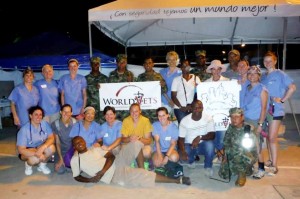 We’d like to thank all of our local partners for a true island effort as well as our volunteers and Fondation Brigitte Bardot who help make this project possible.
We’d like to thank all of our local partners for a true island effort as well as our volunteers and Fondation Brigitte Bardot who help make this project possible.
We have another campaign scheduled in San Andres Island December 1 – 8, 2014. Volunteer opportunities on this project coming soon!




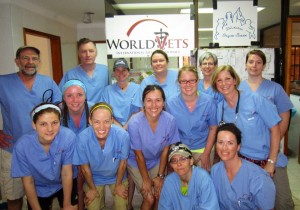
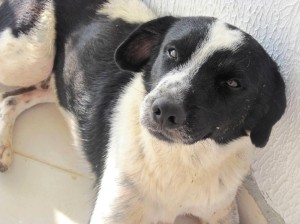 With support from Fondation Brigitte Bardot, World Vets sent its first team to San Andres Island in 2012 for a pilot project. Our team’s visit also made history as being the first foreign veterinary brigade to provide free veterinary services on the Island. Before our initial visit and campaign, it had only been Colombian veterinarians from the mainland that provided irregular veterinary relief.
With support from Fondation Brigitte Bardot, World Vets sent its first team to San Andres Island in 2012 for a pilot project. Our team’s visit also made history as being the first foreign veterinary brigade to provide free veterinary services on the Island. Before our initial visit and campaign, it had only been Colombian veterinarians from the mainland that provided irregular veterinary relief. 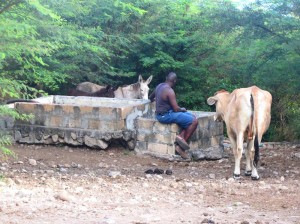 This year World Vets is continuing its assistance to the Department of Agriculture in St. Eustatius; a small island located in the Netherland Antilles in the Caribbean. In 2012 World Vets sent a preliminary team to the island where they conducted a pilot project. The objective of their visit was to help the island contain its ever growing animal population. Our team provided castrations to both donkeys and small animals. They also visited the island`s livestock facilities to assess overall health and identify any prevalent ailments.
This year World Vets is continuing its assistance to the Department of Agriculture in St. Eustatius; a small island located in the Netherland Antilles in the Caribbean. In 2012 World Vets sent a preliminary team to the island where they conducted a pilot project. The objective of their visit was to help the island contain its ever growing animal population. Our team provided castrations to both donkeys and small animals. They also visited the island`s livestock facilities to assess overall health and identify any prevalent ailments.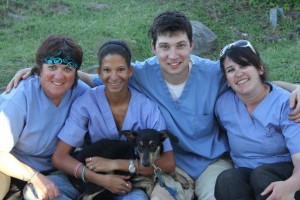 In 2013 World Vets will send two follow up teams. These teams will further contribute to the goal of having an animal population that is sustainable for the island. One team will address small animal health and population and another to address livestock and the roaming donkey population. Both projects have volunteer opportunities available:
In 2013 World Vets will send two follow up teams. These teams will further contribute to the goal of having an animal population that is sustainable for the island. One team will address small animal health and population and another to address livestock and the roaming donkey population. Both projects have volunteer opportunities available: